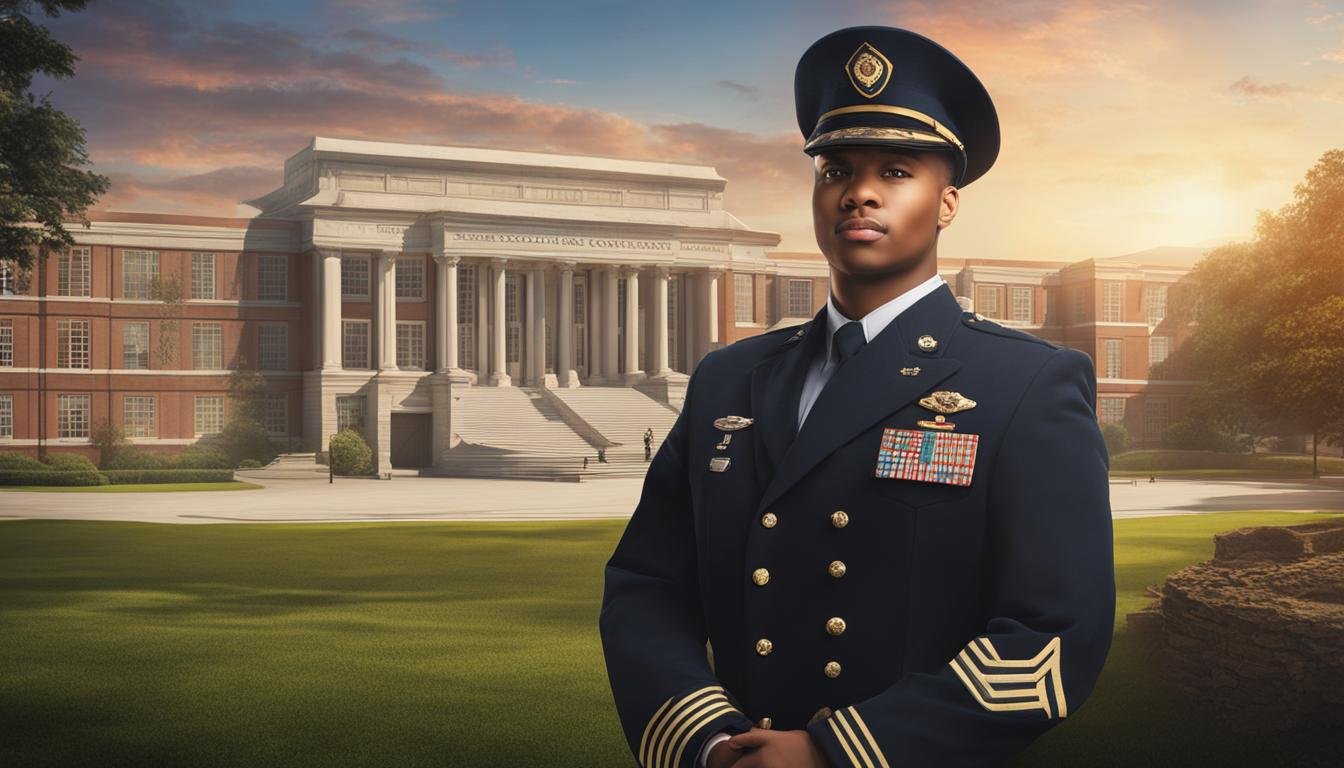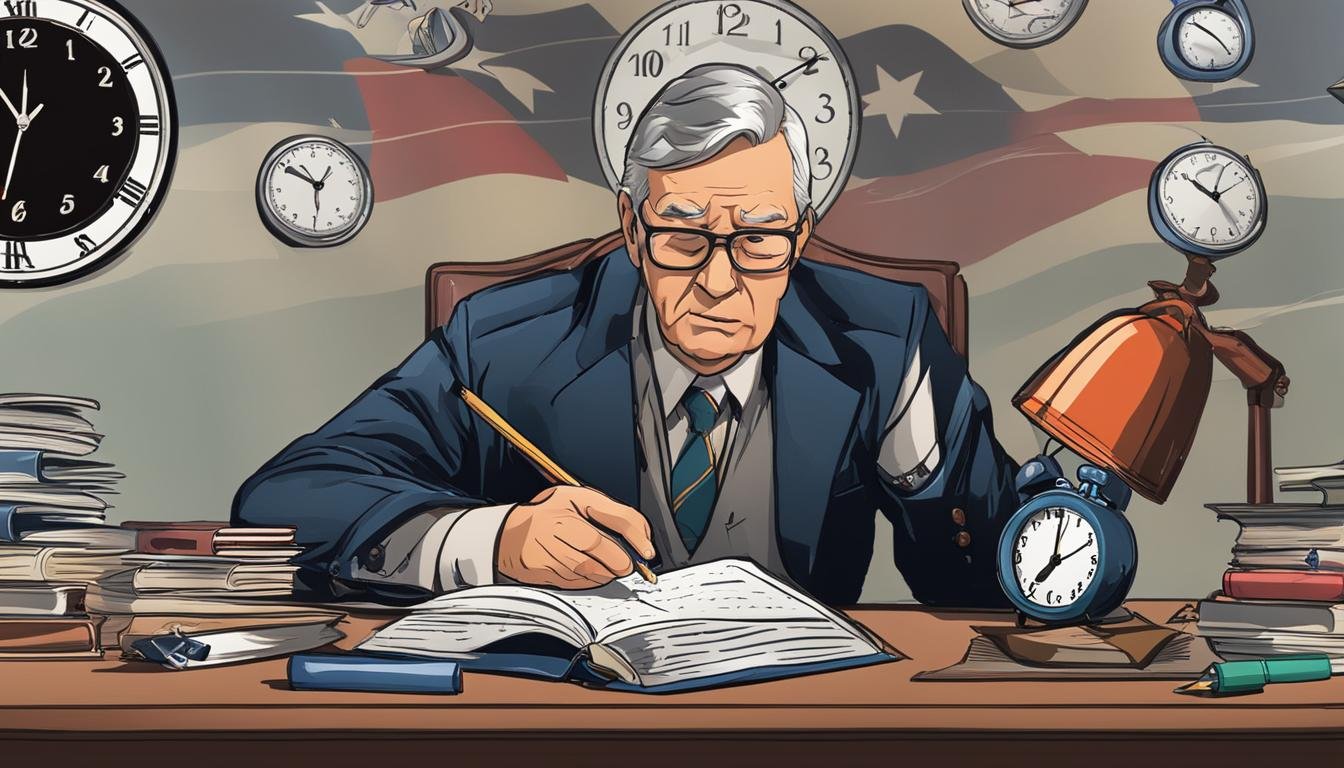Veterans who are pursuing higher education face unique challenges that their non-military peers may not encounter. From physical and mental health issues to difficulties adjusting to campus life, these obstacles can make the college admissions process overwhelming. Research indicates that veterans in college experience higher rates of substance abuse and PTSD compared to their peers. They may also struggle with social interactions and connecting with traditional students. Furthermore, managing education-related finances and navigating available services can be daunting for veterans.
Colleges and universities play a crucial role in supporting veterans’ successful integration into higher education. It is imperative for institutions to provide tailored resources and support to address the specific needs of veterans. By doing so, they can ensure a smooth transition and empower veterans to thrive in their educational pursuits.
Key Takeaways:
- Veterans face unique challenges in college admissions due to their military experience.
- Support programs and resources should be tailored to address the specific needs of veterans.
- Colleges and universities should provide assistance with navigating the admissions process and understanding veteran benefits.
- Academic and mental health support are essential for the success of veteran students.
- Financial aid programs specifically tailored for veterans can help alleviate financial burdens.
Veterans who are interested in pursuing higher education often find themselves navigating a complex college admissions process. They may need assistance in understanding the different application requirements and deadlines, as well as guidance on selecting a veteran-friendly college or university.
One crucial aspect of the college admissions process for veterans is finding college application assistance tailored to their unique needs. Many organizations and institutions offer specialized support to help veterans successfully navigate the application process. This assistance can include personalized guidance on filling out applications, understanding necessary documentation, and submitting required materials.
In addition to the application process, veterans may also have questions about their eligibility for GI Bill benefits and how their military experience can translate into college credits. Veteran-friendly colleges and universities have dedicated resources to answer these questions and provide the necessary information to support veterans’ educational goals. They understand the value of the skills veterans acquired during their service and can help them maximize their potential as they transition to college life.
“The knowledge and experience veterans bring to the table are invaluable assets to the college community. We strive to make the college admissions process as smooth as possible for veterans, ensuring they receive the support they need to succeed academically and personally,” says John Smith, Dean of Admissions at Veterans University.
To further assist veterans in their college transition, it is essential to identify colleges that prioritize supporting veteran students. These veteran-friendly colleges often have dedicated support programs, such as veteran resource centers, counseling services, and financial aid specifically tailored to meet the needs of veterans. By choosing a veteran-friendly college, veterans can benefit from a community that understands and supports their unique journey.
| College | Location | Services |
|---|---|---|
| Veterans University | XYZ City | Veteran resource center, counseling services, financial aid |
| Heroes College | ABC City | Transition assistance, mentorship programs, support groups |
| Patriot University | LMN City | GI Bill support, credit for military experience, academic advising |
How Can Veterans Overcome Challenges in College Admissions Due to Their Military Experience?
Veterans may face unique challenges in college admissions due to their military experience. To overcome these obstacles, they can highlight their leadership, discipline, and work ethic gained from their military experience in admissions. Additionally, seeking support from veteran resources on campus can provide valuable assistance during the application process.
Strategies for Success in College Admissions for Veterans
When it comes to college admissions, veterans have unique needs that require tailored strategies for success. To ensure a smooth transition into higher education, colleges and universities should provide comprehensive support programs specifically designed for veteran students.
Academic assistance plays a crucial role in the success of veterans in college. Offering tutoring services and study skills programs can provide the necessary support for veterans to thrive academically. These programs help veterans develop effective study habits and enhance their understanding of course material.
Financial aid programs targeted at veterans can also make a significant difference. Higher education can be a financial burden, and veterans may require additional assistance to meet their educational expenses. By offering financial aid options specifically for veterans, colleges can help alleviate the financial stress and enable veterans to focus on their studies.
Mental health support is another essential aspect of ensuring success for veterans in college admissions. Many veterans may struggle with mental health issues such as PTSD, and it is crucial to provide specialized counseling services. By offering a safe and supportive environment, colleges and universities can help veterans manage their mental health and promote overall well-being.
Support programs for veteran students
In addition to academic and mental health support, colleges and universities should establish support programs that foster a sense of community among veteran students. Creating a supportive network can help veterans connect with fellow students who share similar experiences and challenges, creating a sense of belonging and camaraderie.
By implementing these strategies and offering comprehensive support programs, colleges and universities can create an inclusive environment that facilitates the successful integration of veterans into higher education. It is crucial to recognize the unique needs of veterans and provide them with the resources they need to succeed on their educational journey.



